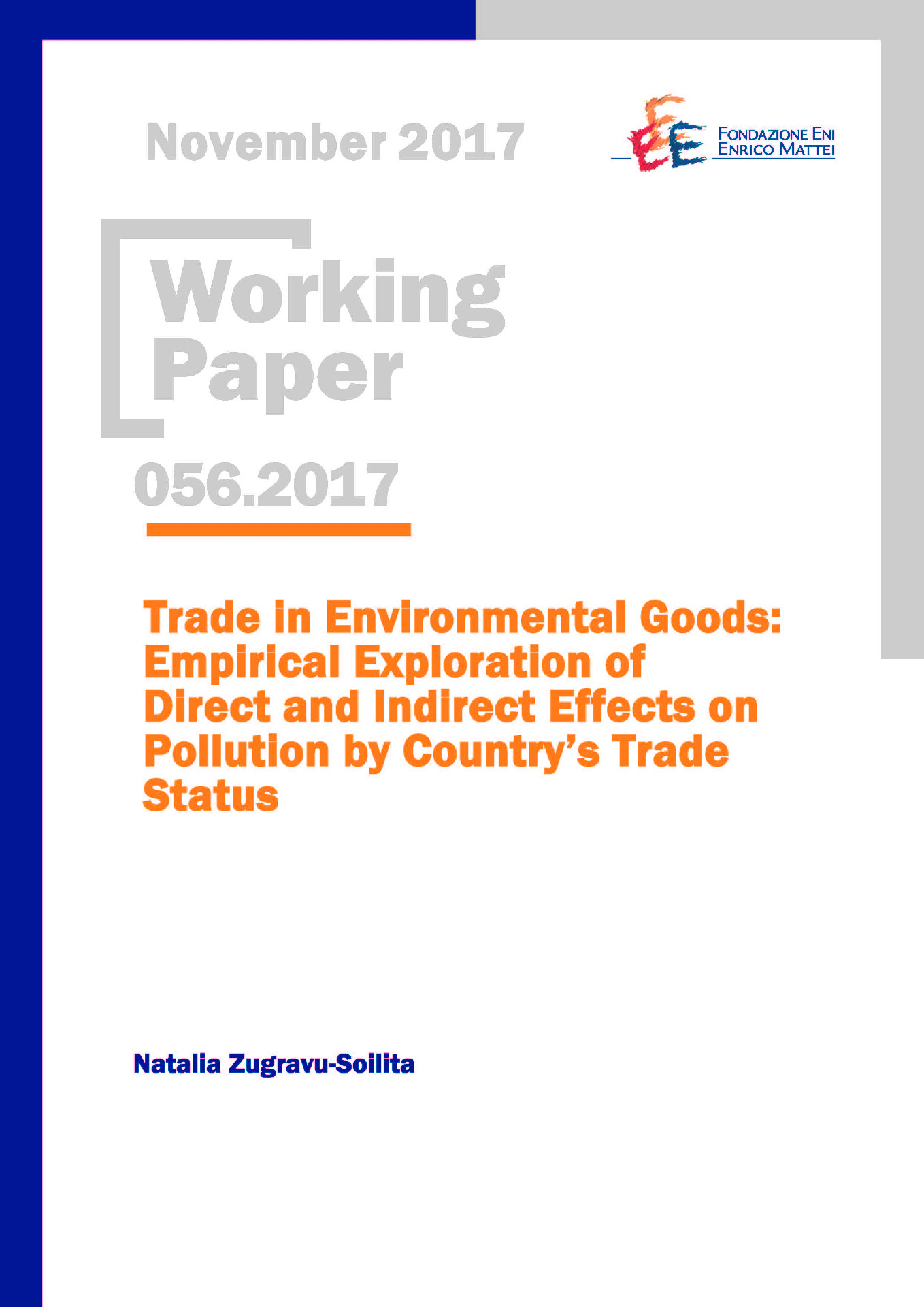Trade in Environmental Goods: Empirical Exploration of Direct and Indirect Effects on Pollution by Country’s Trade Status

15.11.2017
Natalia Zugravu-Soilita (University of Versailles Saint-Quentin-en-Yvelines)
F13, F14, F18, Q53, Q56, Q58
Environmental Goods, Environmental Policy, Net Exporter, Net Importer, Pollution, Trade
Climate Change: Economic Impacts and Adaptation
Francesco Bosello
Based on panel data covering 114 countries in the world, this study investigates the direct, indirect and total effects of trade flows in environmental goods (EG) on total CO2 and SO2 emissions. Our system-GMM estimations reveal positive direct scale – [between-industry] composition effects prevailing on the negative direct technique – [within-industry] composition effects (if any), as well as compensating the significant indirect technique effects channelled by the stringency of environmental regulations and per capita income. If the net importers of EGs (namely from the APEC54 and WTO26 lists) are recurrently found to face increased pollution (in particular CO2 emissions) due to direct scale-composition effects of trade in EGs, the EGs’ net exporters are more likely to see their local pollution to decrease, in particular thanks to income-induced effects. We show that the direct, indirect and total effects of trade in EGs depend on the country’s net trade status, the EGs’ classification and the pollutant considered.
***
Suggested citation: Zugravu-Soilita, N., (2017), ‘Trade in Environmental Goods: Empirical Exploration of Direct and Indirect Effects on Pollution by Country’s Trade Status’, Nota di Lavoro 56.2017, Milano, Italy: Fondazione Eni Enrico Mattei
